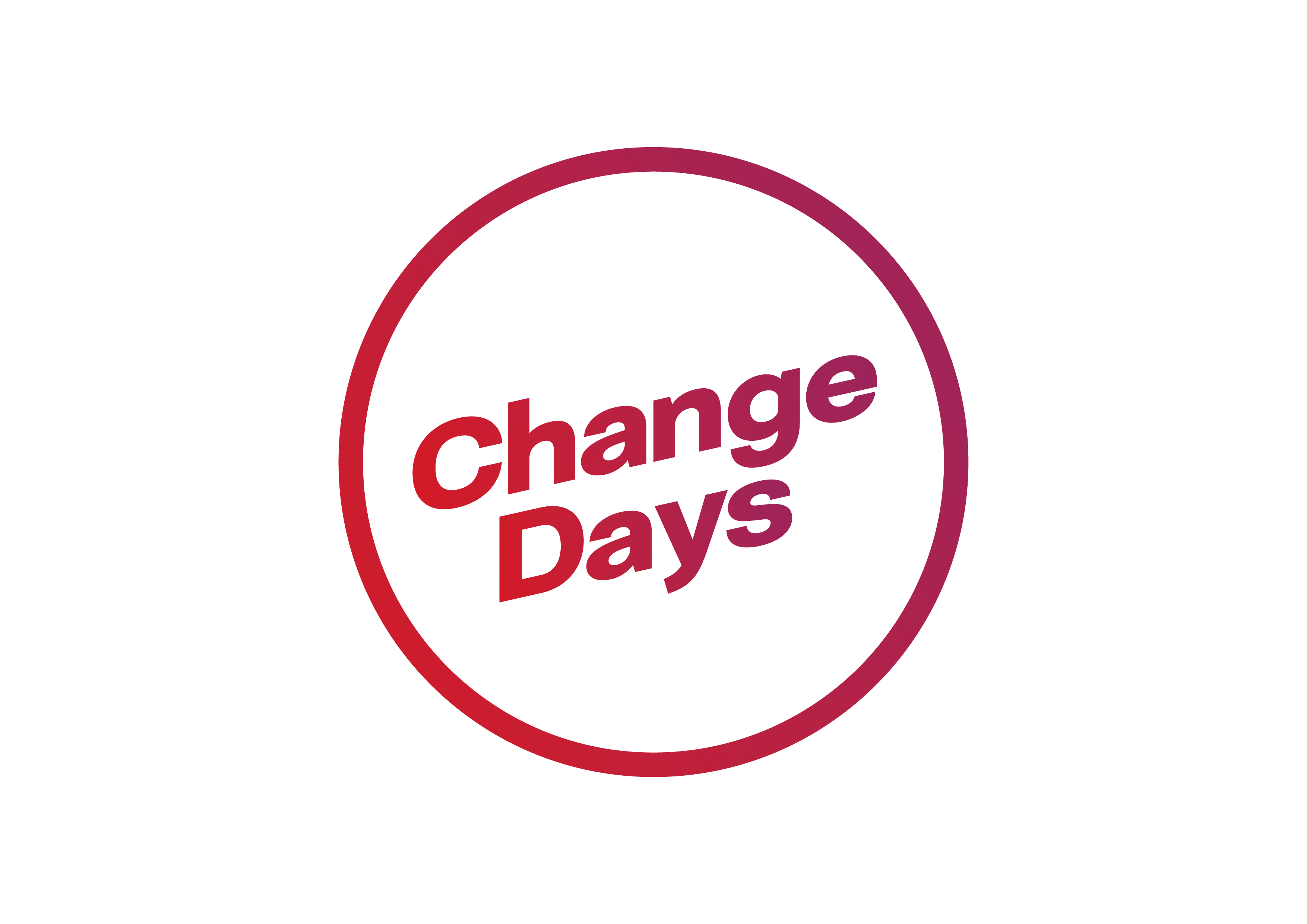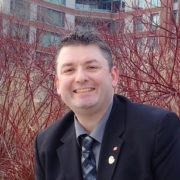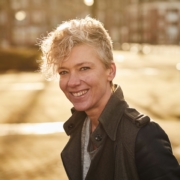Working with and/or inspiring others in your organization to change through the traditional change or project management approaches can be frustrating. Try a coaching approach instead! In this interactive workshop, you will Develop Change Intelligence®, a human-centered capacity to lead change collaboratively. You will identify your personal and team’s change leadership styles, work in groups on scenarios, and share lessons learned about how to promote and sustain a culture of transformation!
We live in a complex global world where demands of leaders are increasing everyday. With a focus on transparency, inclusion, equality, agility, possibility and collaboration, how can leaders leverage themselves to live, work and play in a way that is respectful, sustainable, and most important, fun?
The answer is simple. Curious conversations. Hiding behind texts, emails and social media, conversational skills are the most important skills leaders are failing to engage in. Research out of Stanford is showing that 9 out of 10 conversations miss the mark. Research is also showing organizations are focused on ‘soft’ skills that have hard impacts: communication skills, critical thinking, agility – all of which require curiosity. These are skills that are expected of leaders but are never taught. Curious conversations are the disruptor needed to thrive in our global, multigenerational workplace.
In our interactive workshop, participants will experience how curious conversations are at the forefront of innovation and collaboration in a time where demands are high and resources are low. Participants will experience and learn: -The value of different perspectives, there is never just one way to do anything – Communication skills to shift leaders from reacting to intentionally responding – Self-awareness, clarity around how they are showing up as a leader, their impact and turning barriers into bridges – The skills needed to collaborate, innovate, problem solve & manage emotions. Skills that are currently expected of leaders but have never been taught Canada’s success lies in our leaders’ ability to confidently disrupt the status quo, step out of comfort zones while also being inclusive and collaborative, as they reflect rather than react.
Political behaviour in organizations is an acceptable and pervasive dimension of organization life. There is a growing body of literature that views organisational politics as central to our understanding of the workings of the organization.
The main objectives of the workshop are:
- To examine sources of power and influence and how these interplay with change agendas and programmes
- Analyse conflict and experience different techniques of dealing with difficult situations and the influence and political choices open to participants.
We provide a useful process of distinguishing between the purpose of the political act (outcomes), the behaviour itself (means deployed) and the relevant context (situational characteristics). This enables us to conclude that organisational politics occurs when goal attainment is sought by informal, rather than formal means of influence in the face of potential conflict. Therefore, participants will explore how they influence change utilising political strategies.
Change Agents are constantly challenged by senior leadership to show the value of change management to deliver successful change initiatives. Before we can discuss the right approach, we need get them sponsoring the change and supporting the change management presence. This workshop will use Lego® Serious Play® as an approach to show the value of change sponsorship, change management and leadership by SHOWING its worth and understand how to develop a psychological contract to support change management activity for organizations and their leadership teams.
Focused leadership is crucial to the success of change management. Neuro-science based models of human interaction explain the domains of focus for leaders of change. The SCARF model, developed by Dr. David Rock, helps leaders focus on key concerns during change of status, certainty, autonomy, relatedness, and fairness.
The workshop provides an overview of the basics of neuro-science and change informed by the SCARF model of social interaction. Participants are then provided with a easy to use diagnostic and change process, termed RAINE, that leverages individual mindfulness to create an operating approach at the group and organizational level.
In this workshop participants will go on a quick tour around the human brain to find out where trust ‘sits’ and how fragile the notion of ‘trust’ is. The quality of our conversations and our ability to connect with our counterparts play an important role. Interaction dynamics – not only in the face of change – can be filled with conflicting beliefs about authority, leadership, power and dominance. Learning to shift into Power-With Leadership by changing conversations will promote healthy, thriving, productive workplaces where change is co-created in a trustful environment, says Judith E. Glaser from Benchmark Communications Inc and The Creating WE Institute. But how exactly?
Workshop participants will have the chance to experience a ‘brought-to-life’ version of the CHANGES® model in more depth, and share their thoughts on application and practicability in their contexts. The CHANGES® model is at the heart of a catalyst tool developed by Judith and her team, the CreatingWE DNA Index®, which helps teams and entire organizations to go through major transformations shifting from I to WE.
The aim of the workshop is to present the ‘Deep Democracy’ approach and to show how that this philosophy can be applied to change management projects. The workshop consists of a short input presentation and a group exercise in which one goes through the classic phases of a (process-oriented) group process. Finally, a joint debriefing takes place. Deep Democracy is an approach that explicitly focuses on making cooperation patterns in groups transparent. There are different application possibilities, among other things in the organizational context. One possible application is change management. It is aimed at people who deal with change on a collective and individual level. Deep Democracy is more than a tool or a method. It can be relevant for OE’ler, change managers, PE managers, organizational consultants and executives (who are entrusted with comprehensive change projects).
The methodology describes social change processes on a individual and collective level. The methodological and ideological roots are based on C.G. Jung, constructivism, quantum physics, taoism as well as on shamanistic ground, psychodrama, gestalt and further developed by Arnold Mindell/USA. Process Work offers promising future methods, tools and attitude in dealing with individual and collective change processes. We believe that the key to solution-focused results lays within the irritation resp. resistance in itself. There, where irritations show up the most, there lies the juice, where there are unconscious, not yet known, important information to make further development possible in a larger field. Originally, Process Work comes from the therapeutical area and finds its application more and more in the business world, such as organisational development, individual and personal transformation processes, leadership, conflict resolution, be it in smaller or larger groups as well as within management coaching.
Specialities of Process Work are Deep Democracy as an attitude, field theory, polarities, area of tension and irritation, 3 levels of reality, rank and privileges, awareness of different communication signals, body work and relationship building.
The goal of the workshop is to perceive and understand the underlying structure of on-going processes, unfold the human potential for one-self as well as for the group and organisations to develop sustainable solutions and effects. Self-empowerment and activation of the resources of the group and all persons involved are keys. During the workshop theoretical-conceptional input and exercises are balanced to make space for self-reflection, exercises in pairs and working on specific topics in order to transfer it back to the teams at home. Likewise we follow the on-going process at the very moment of the group, of the seminar leader itself with a beginner’s mind and a lot of curiosity and playfulness
Get a load of this: in the Netherlands a police officer isn’t allowed to choose the partner with whom he is teamed up in the police car. He has no say in the choice of partner who might or might not save his life in a life or death situation. Police people, nurses, teachers and many other professionals are often prevented from doing their work properly by all kinds of rules, regulations and interference by managers and other staff, based on an inherent distrust of the healthy judgement of professionals. Fortunately, in many organisations, professionals are standing up and forming movements to reclaim their own professionalism, judgement and space to do their work properly. These movements, of course, want to spread the word and communicate with the people inside and outside the movement. This calls for a different kind of communication than the classic, top down corporate communication. It is what Esther calls ‘activist communication’.
Activist communication does the following:
- It stands between and is co-created with the innovators and change agents
- It harvests stories from the undercurrent
- It gives words to new concepts
- It spreads valuable ideas
- It keeps the dialogue alive
- It kisses the future awake
It does this in many, often creative forms. Activist communication searches for ways to appeal to the right brain, the intuition. In this workshop Esther will talk to the participants about activist communication and her experience at – among others – the Dutch National Police (illustrated with many photos and examples). Then the participants will do the activist poster workshop she has done many times at the police and, for instance, in health care organisations. The participants develop an interesting quote or motto about something that really frustrates them in their work, makes them an feel rebellious, or alternatively something that really inspires them. Through (street) art they turn this into an appealing poster. The workshop is designed to empower participants, as well as search for ways to make progress, break down faulty systems and move from distrust to trust, while staying in conversation with the main order of things.
This workshop is based on Process Work by Arnold Mindell et. al. Process Work is a paradigm how to work within companies these days. Process Work views companies as complex systems in which structural aspects, such as positions, the individuals filling them, hierarchy, larger cultural content and power dynamics inform the way the company is functioning. Process Work focuses on working with the interaction bringing out all the voices and making visible and bring to light the hidden insights and wisdom of the group. Having awareness of your own ranks helps you to understand why you may feel less powerful or abused by someone with higher rank. On the other side having awareness of your higher rank can lessen the likelihood of your using it in a way that is experienced as hurtful or abusive by someone of lower rank. Rank is described as the sum total of a person’s power and privileges at any given moment. You earn some of your power and privilege over your life, by facing life’s challenges and overcoming them. Some ranks are unearned: you acquire them by birth or social position. Rank is not constant and can change from moment to moment in a particular situation. Having more awareness of your own ranks in your relationships and talked about it, can radically change the way you interact and behave with people.
In the beginning there will be a short introduction to Process Work, different rank types, privileges and the connection to relationships. The participants will experiment with their own ranks and privileges, better understand the different rank types, identify with them in order to be more powerful and effektive at work. Furthermore, they become more sensitive to the hierarchies in the background of the relationships, roles and organisations and arrive at a strong position in terms of action. Also becoming more conscious of their own ranks and practice perceiving and enjoying them.









